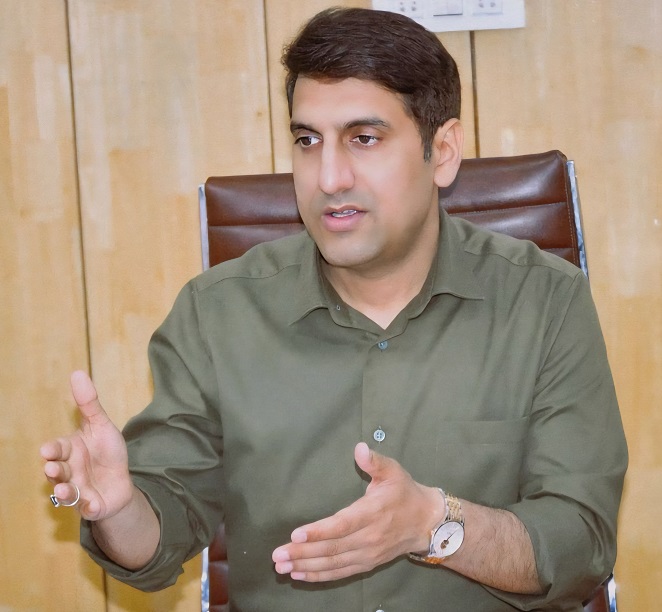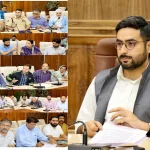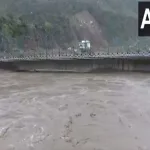Srinagar, July 14: Secretary, Rural Development Department (RDD) and Panchayati Raj, Mohammad Aijaz Asad, chaired a review meeting on Monday to evaluate the progress on the Annual Implementation Plan (AIP) 2025-26, assess the status of locational plans, verify water assets and review progress on the GOBARdhan plants.As per the statement issued, the meeting was attended by Director General Rural Sanitation, Anoo Malhotra; Director Rural Development Kashmir, Shabir Hussain Bhat; Director Rural Development Jammu, Shahnaz Akhter; Superintending Engineer REW Jammu, Rajesh Kumar Agastam; Superintending Engineer REW Kashmir, Shafat Hussain besides Deputy Directors Rural Sanitation, Assistant Commissioners Panchayat (ACPs) and Executive Engineers of REW from all districts.During the review, the Secretary emphasized the need for timely tendering, land identification and rapid execution of all planned works under the AIP 2025–26. He urged the district teams to eliminate procedural delays and ensure real-time progress reporting.A detailed district-wise discussion was held on pending locational plans for various sanitation-related assets, including Compost Pits, Soak Pits, Community Sanitary Complexes (CSCs), Segregation Sheds, Plastic Waste Management Units (PWMUs), GOBARdhan units, Faecal Sludge Treatment Plants (FSTPs), Waste Stabilization Ponds (WSPs) and Decentralized Wastewater Treatment Systems (DEWATs).The Secretary emphasized that Swachh Bharat Mission-Gramin is not just about building sanitation infrastructure, it is about bringing systemic change, ensuring sustainability and achieving measurable outcomes. He asked the ACPs to take ownership at the ground level. From DEWATS and FSTPs to compost pits and segregation sheds, the success of these interventions lies in timely land identification, proactive coordination and a mission-mode approach, he added.Aijaz Asad directed the districts to submit all pending locational plans to the Directorate of Rural Sanitation within five days.The Secretary underscored the importance of 100% digital asset verification through the mWater platform. He directed all the districts to ensure that every completed asset is geo-tagged and digitally verified in accordance with SBM-G protocols to maintain full transparency and accountability.








